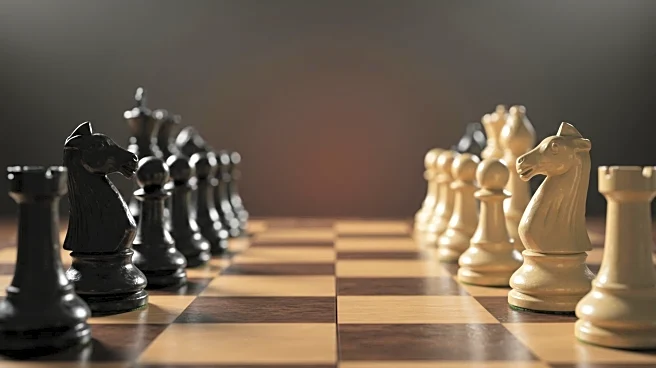What is the story about?
What's Happening?
In a recent summit in Alaska with President Trump, President Vladimir Putin reiterated his grievances over Russia's diminished status since the fall of the Soviet Union. Despite discussions on potential land swaps and cease-fire technicalities, Putin's focus remained on what he described as the 'situation around Ukraine,' which he views as a consequence of Russia's lost influence. He called for a 'fair balance in the security sphere' in Europe and globally, suggesting that this would address the 'root causes' of the Ukraine crisis. This perspective aligns with Putin's long-standing narrative that Russia is a victim of Western actions post-Cold War.
Why It's Important?
Putin's remarks underscore the enduring tensions between Russia and Western nations over influence in Eastern Europe. His focus on restoring Russia's status highlights the broader geopolitical struggle that has implications for global security and diplomatic relations. The conflict in Ukraine serves as a flashpoint for these tensions, affecting NATO's strategic considerations and the security dynamics in Europe. Putin's narrative of grievance may resonate domestically, bolstering his political standing, but it complicates efforts to achieve a peaceful resolution in Ukraine.
What's Next?
The continuation of this narrative suggests that Russia may persist in its assertive foreign policy, potentially leading to further confrontations with Western nations. Diplomatic efforts will need to address not only the immediate conflict in Ukraine but also the underlying issues of security and influence that Putin has highlighted. The international community, particularly NATO and the European Union, will need to navigate these challenges carefully to prevent escalation and promote stability in the region.
Beyond the Headlines
Putin's emphasis on grievances over lost Soviet influence reflects a broader historical context of Russia's identity and its role on the world stage. This perspective raises questions about national pride, historical memory, and the legacy of the Soviet Union in contemporary Russian politics. The situation also highlights the challenges of reconciling national narratives with international norms and the principles of sovereignty and self-determination.
















